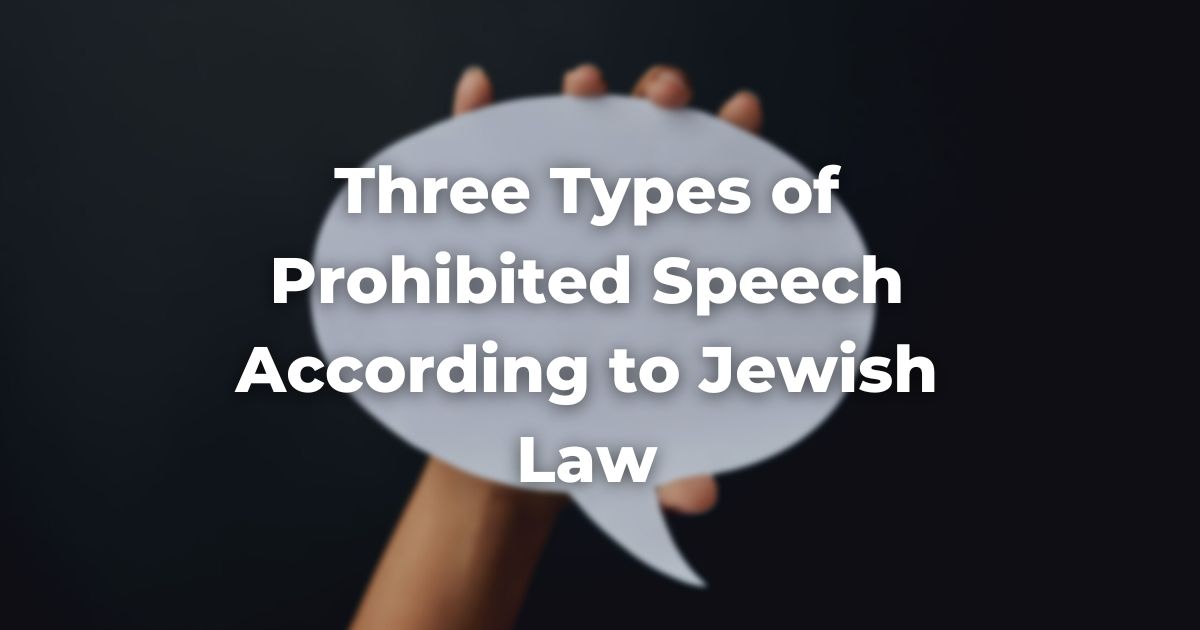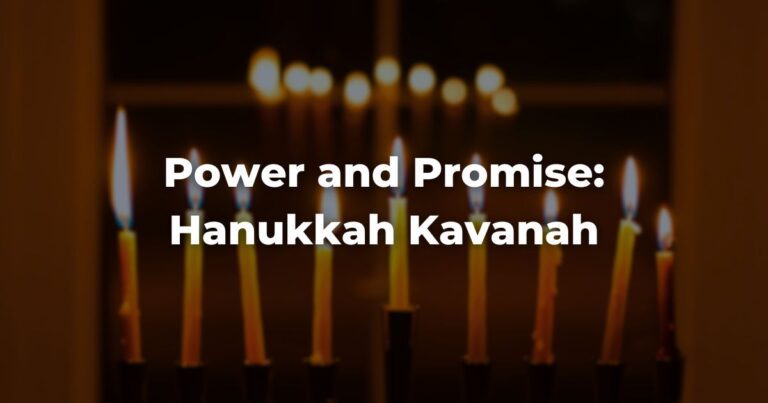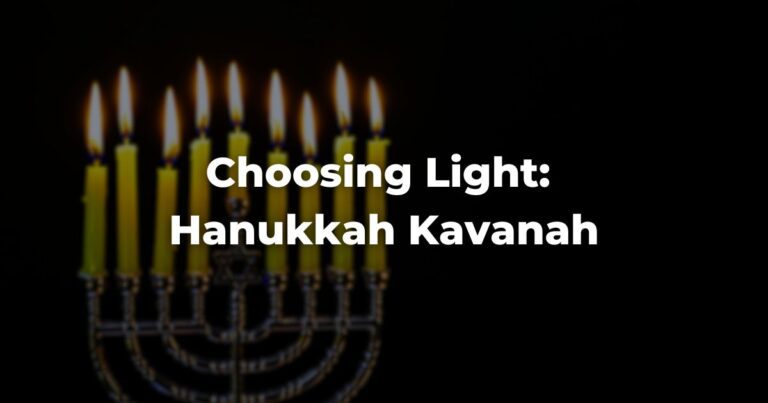What is the Biblical Prohibition on Gossiping?
The verse that becomes the most generative in terms of the halakhah of defamatory speech is the important piece of legislation found at Leviticus 19:16: “Do not go out as a rakhil among your people, nor may you stand upon the blood of another; I am the Eternal.”
Clearly, the verse turns on the precise definition of the word rakhil, which has traditionally been taken to refer specifically to someone who talks about other people or who freely recounts what other people have done or said.
For more on the biblical sources behind this prohibition see our “Biblical Texts Addressing Gossip“.
Unlike most of the prohibitions in the TorahRefers to the first five books of the Hebrew Bible, the Tanakh, also called the Five Books of Moses, Pentateuch or the Hebrew equivalent, Humash. This is also called the Written Torah. The term may also refer to teachings that expound on Jewish tradition. Read more, especially those which remain applicable to Jewish life after the destruction of the Temple, the prohibition in Leviticus 19:16 has been largely ignored as a subject of in-depth legal analysis.
The TalmudReferring to one of two collections, the Jerusalem and Babylonian Talmuds, edited in the 6th century, that contains hundreds of years of commentary, discussion, and exploration of the ideas in the Mishnah. One could describe it as Mishnah + Gemara = Talmud Read more, for example, refers to the prohibition only a few times and most of the subsequent codes of Jewish law, including the authoritative Shulḥan Arukh, are silent on the topic.
This is likely attributable to the broad and vague nature of the prohibition, as well as to the difficulty in legislating the details of something as complex as the manner in which we speak.
Nevertheless, there have been rabbis who have addressed the topic over the centuries, including, in more recent times, a comprehensive treatment of the prohibition by Rabbi Israel Meir Kagan (1838–1933) in his Sefer Chofetz Chaim.
That volume comprises a relatively detailed collection of laws revolving around the prohibition in Leviticus 19:16, even though the author, unlike the authors of other halakhic compendia covering different topics, did not have a huge set of antecedent works on which to draw.
Still, drawing on the sources that do exist and reading them in light of the Sefer Chofetz Chaim, a fairly clear picture of the law as it pertains to forbidden speech begins to emerge. (Because of the immense popularity of the book, its author is often referenced simply as “the” Chofetz Chaim.”)
The Three Categories of Prohibited Speech
It is almost universally agreed upon that the division of the types of speech encompassed by the biblical prohibition fall into three categories of increasing severity:
The basic prohibition is called r’khilut (as noted, from the word rakhil in Leviticus 19:16; cf. Y Peah 1:1; Mishneh Torah, Human Dispositions 7:1; Maimonides’ Sefer Ha-mitzvot, negative commandment 301; and Sefer Ha-ḥinukh, commandment no. 243).
This is defined as the act of saying about another person anything at all that may potentially cause that person physically, emotional, or financial harm.
One therefore transgresses the prohibition against r’khilut even if it what one says is true, even if it is not negative, and even if the person about whom one is speaking would say the exact same thing {Sefer Chofetz Chaim, Hilchot Is-surei R’khilut 1:4–5, ed. Jerusalem, pp. 184–185).
A classic example of r’khilut is found in 1 Samuel 22, where Doeg the Edomite is heard to tell King Saul that Aḥimelekh, a priest serving in the sanctuary at Nob, had given David food and provisions. Saul, who is in pursuit of David, infers that Aḥimelekh is conspiring against him with David and proceeds to order the murder all of the inhabitants of Nob.
The information Doeg tells Saul is neither negative nor false, and since Aḥimelekh was not in fact conspiring against Saul, he would undoubtedly (or almost undoubtedly) have told Saul the same thing had he been asked.
Nevertheless, because Doeg’s words had the potential to cause harm, he committed r’khilut—and this would have been true no matter what his intentions had been and regardless of whether or not any harm actually came from his words.
A more severe form of the prohibition is called lashon hara (“the tongue of the wicked individual”) and is defined as the act of saying anything at all about another person that is negative, even if it is true.
Lashon hara is more severe than r’khilut because it entails the clear intention to cause harm.
And there is also a subcategory of lashon ha-ra known as avak lashon hara (“the dust of lashon hara”) which, while not technically prohibited, is still something the upright will strive to avoid.
In this category, among other things, falls speech that entices others to speak lashon hara, such as the act of speaking favorably about someone in the presence of that person’s enemies when the likelihood is that doing so will merely provoke the party to whom one is speaking in turn to speak poorly of that same individual {Mishneh Torah, Human Dispositions 7:4).
The most severe form of the prohibition is called hotza·at sheim ra, which is defined as the act of saying something about another person that is negative and false.
The term comes from Deuteronomy 22:14 (although the prohibition is derived from Leviticus 19:16, as recorded in the name of Rabbi Eleazar in BT Ketubot 46a), which discusses the law of a man who falsely proclaims his bride to have not been a virgin at the time of their marriage.
The term is used in the sources more widely to describe the act of speaking lies that are intended not to inform but specifically to defame.
Related Transgressions
While all three categories—r’khilut, lashon hara, and hotza-at sheim ra—are derived from the prohibition of Leviticus 19:16, one who transgresses them is likely to be simultaneously transgressing other prohibitions as well.
In fact, the introduction to Sefer Chofetz Chaim lists seventeen possible prohibitions that one could simultaneously transgress with a single statement, among them the biblical prohibitions of putting “a stumbling block before the blind” (Leviticus 19:14), of hating one’s brethren in one’s heart (Leviticus 19:12), and of general wrongdoing toward others (Leviticus 25:17).
And making the situation even more complex is the underlying assumption that both the one who utters improper speech and the one who listens to it are considered to have transgressed when any of the above-mentioned sins is committed.
Obedience to the law as it applies to improper speech thus requires moment-by-moment vigilance in a way that other categories of the law simply do not.
Fortunately, our tradition understands this challenge and makes a distinction between those who transgress only occasionally and those who transgress habitually. (See in this regard, e.g., Sefer Chofetz Chaim, Hilkhot Issurei L’shon Ha-ra 1:3,)
Still, any transgression should be taken seriously.
Indeed, since God created us in the divine image and gave us the power of speech specifically so that humanity might join with God in the ongoing work of creation and the maintenance of creation, any improper use of speech should be viewed as tantamount to a rejection of the notion that humankind, created in the divine image, constitutes the crown of God’s creation.
Adapted with permission from The Observant Life.
Author
-

The Observant Life: The Wisdom of Conservative Judaism for Contemporary Jews distills a century of thoughtful inquiry into the most profound of all Jewish questions: how to suffuse life with timeless values, how to remain loyal to the covenant that binds the Jewish people and the God of Israel, and how to embrace the law while retaining an abiding sense of fidelity to one’s own moral path in life.
Written in a multiplicity of voices inspired by a common vision, the authors of The Observant Life explain what it means in the ultimate sense to live a Jewish life, and to live it honestly, morally, and purposefully. The work is a comprehensive guide to life in the 21st Century. Chapters on Jewish rituals including prayer, holiday, life cycle events and Jewish ethics such as citizenship, slander, taxes, wills, the courts, the work place and so much more.
View all posts




